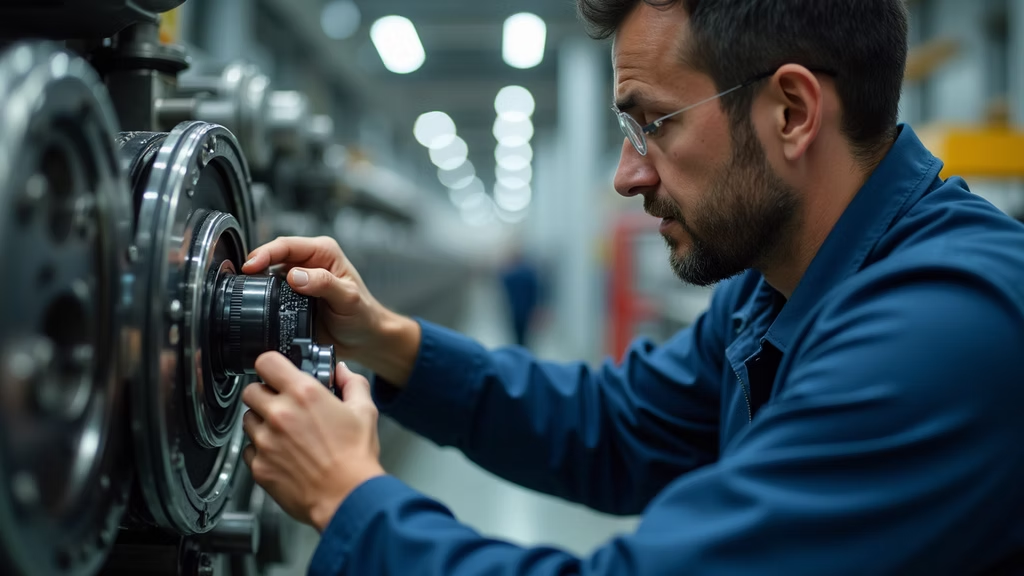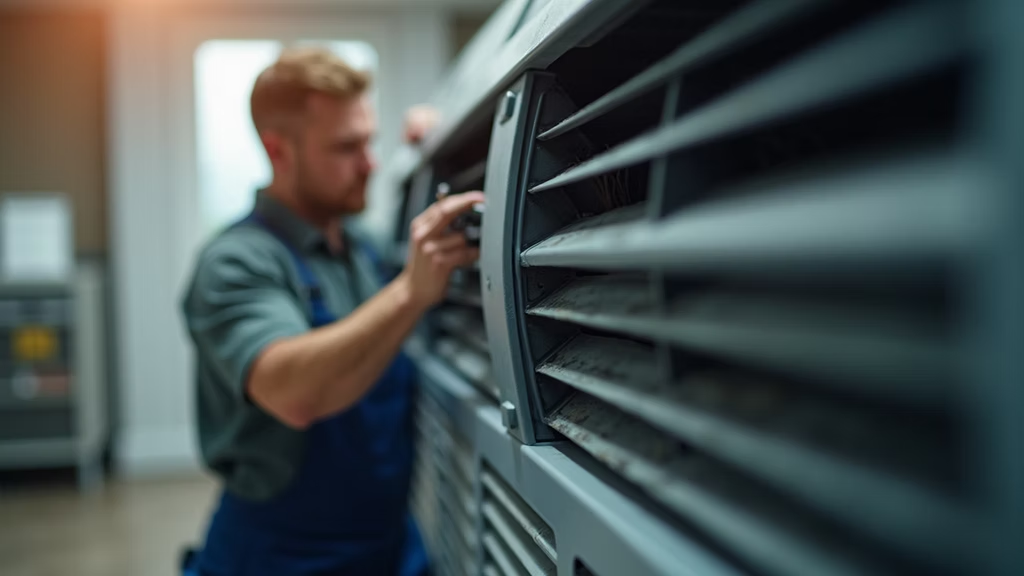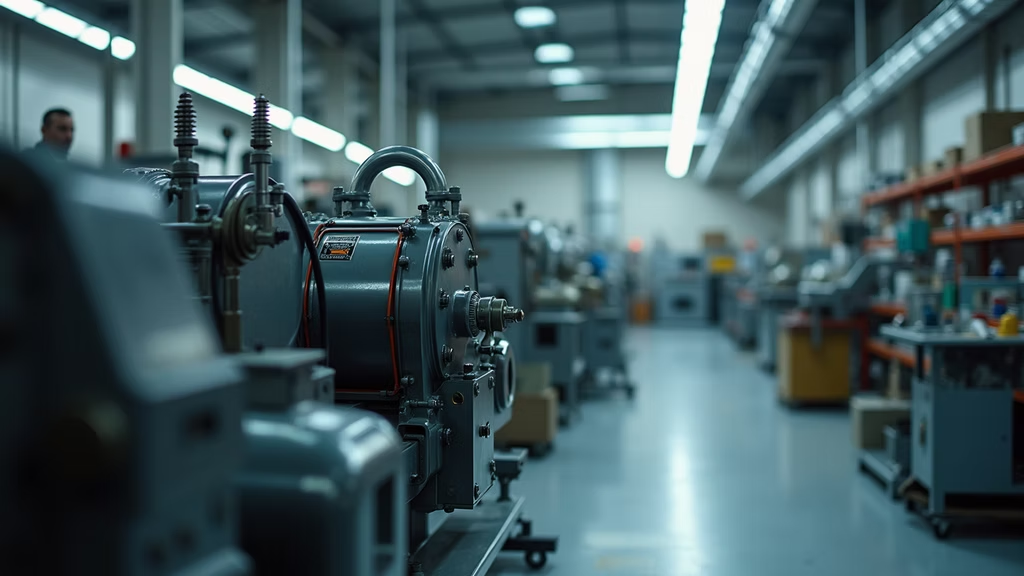Preventive maintenance is a critical practice for businesses and homeowners alike. It involves regularly scheduled maintenance performed on equipment and systems to reduce the likelihood of severe issues. This practice is not just about fixing what’s broken. Instead, it's about identifying potential problems before they escalate. In this article, we’ll explore the importance of a preventive maintenance routine, providing practical examples and actionable recommendations that can help you ensure your equipment operates efficiently.
What is Preventive Maintenance?
Preventive maintenance includes a series of tasks designed to keep equipment functioning at optimal levels. These tasks can include cleaning, adjusting, lubricating, and replacing worn parts before they lead to equipment failure. The key to an effective preventive maintenance routine is scheduling these tasks regularly instead of waiting for something to break.
One common example of preventive maintenance is changing the oil in a vehicle regularly. Most car manufacturers recommend oil changes every 3,000 to 5,000 miles. This small task keeps the engine running smoothly and can prevent costly repairs down the line. A preventive maintenance schedule can save thousands in repairs while extending the life of your equipment.

Technician performing preventive maintenance on machinery.
Benefits of a Preventive Maintenance Routine
Implementing a preventive maintenance routine offers numerous benefits. Here are some key advantages to consider:
- Reduced Downtime: Regular maintenance prevents unexpected breakdowns, minimizing equipment downtime. For instance, in industrial settings, unplanned downtime can cost thousands per hour. By maintaining equipment, businesses can avoid these costly interruptions.
- Lower Repair Costs: Preventive maintenance helps in identifying issues before they escalate into major problems. For example, a small leak in a machine could become a significant issue if ignored. By addressing it early, costs can be reduced significantly.
- Improved Safety: Equipment failures can pose serious safety risks to employees. Regular maintenance ensures that all machinery and tools are safe to use. In high-risk industries, this can be the difference between life and death.
- Increased Efficiency: Equipment that is well-maintained operates more efficiently. For instance, a clean air filter in an HVAC system can improve air quality and reduce energy consumption. Efficient machines also translate to higher productivity levels.
- Extended Equipment Life: Proactive maintenance can extend the lifespan of your equipment. Regular servicing keeps all components in good condition, significantly prolonging their usable life.

HVAC technician performing routine maintenance on an air conditioning unit.
Best Practices for Implementing Preventive Maintenance
To successfully implement a preventive maintenance routine, consider the following best practices:
- Develop a Maintenance Schedule: Create a comprehensive schedule for all your equipment. Include details on what tasks need to be performed, when, and who is responsible. Digital tools and software can help with reminders and tracking.
- Train Your Staff: Ensure that personnel are trained and understand the importance of preventive maintenance. Regular training sessions can significantly enhance their ability to identify potential issues.
- Document Everything: Keeping records of maintenance performed helps in recognizing patterns and trends. Document what was done, when, and by whom. This record can be beneficial in forecasting future needs.
- Use Quality Parts and Products: Always use quality parts when replacing components. This investment pays off in the long run, as high-quality parts tend to have a longer lifespan and perform better.
- Assess and Adjust Regularly: Monitor your preventive maintenance routine and make adjustments based on efficiency and effectiveness. Regular reviews can help ensure that the routine is still suitable for the current operating conditions.

Organized workshop with machinery ready for preventive maintenance tasks.
Common Industries that Benefit from Preventive Maintenance
Various industries significantly benefit from a preventive maintenance routine. Let's take a look at a few of them.
- Manufacturing: In manufacturing, equipment failure can halt production and lead to severe losses. Regular inspections and maintenance allow for continuous operation, ensuring maximum productivity.
- Healthcare: In healthcare, the proper functioning of medical equipment is crucial for patient safety. Preventive maintenance ensures that machines, like MRI devices and ventilators, are operating correctly.
- Transportation: Fleet management in the transportation industry relies heavily on preventive maintenance to keep vehicles running smoothly. Regular checks and upkeep can vastly reduce the risk of breakdowns on the road.
- HVAC Systems: Heating, ventilation, and air conditioning systems perform optimally when regularly maintained. In this sector, preventive maintenance keeps systems efficient and helps avoid emergency repairs.
- Facilities Management: Building management teams frequently use preventive maintenance to ensure that all systems, from plumbing to electrical work, function without issues. Regularly scheduled maintenance prevents major disruptions and costly repairs.
Conclusion: Take Action Today
The importance of a preventive maintenance routine cannot be understated. From reduced downtime to increased efficiency, the benefits of such a practice resonate across various industries. By following the best practices outlined in this article, like developing a maintenance schedule and training staff, you can achieve smoother operations and save money in the long run.
Investing in a preventive equipment maintenance routine is an investment in the future of your organization. Take action today, and reap the rewards of a well-maintained operation. Whether you manage a fleet of vehicles or maintain an industrial manufacturing facility, start implementing a preventive maintenance strategy now and see the difference it can make in your daily operations.

